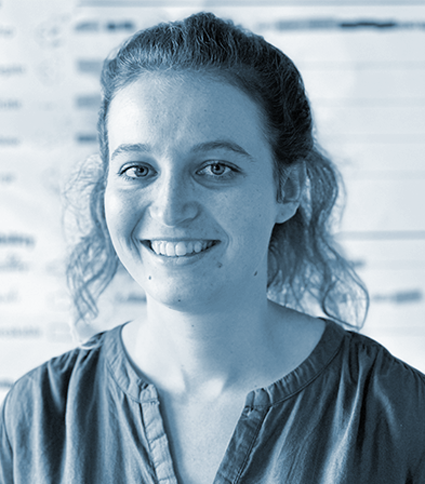
Paymal Léa
Designing alternative, non-utilitarian experiential qualities for smart home technologies. Thesis supervised by James Auger (CRD), co-supervised by Sarah Fdili Alaoui (LISN UP-Saclay, UAL, London) and Sarah Homewood (HCC, University of Copenhagen). Since September 2023.
Designing alternative, non-utilitarian experiential qualities for smart home technologies.
Thesis summary
Technologies mediate our experience of life. Over the course of the past few decades, cutting-edge technologies have been increasingly integrated into the domestic context. This integration has taken place through the introduction of automated, electronic devices, commonlye smart through their operation, are generally designed with goal-oriented qualities, rather than experiential ones. Design researchers have argued that automation processes reduce the field of possibilities, due to the radical downsizing of complexity required by sensors and actuators (Dourish, 2001; Hendren, 2020). Using design as a methodology, I propose to go beyond the stereotypical notions of ‘intelligence’ conveyed by technological progress, in order to explore the alternative experiences that smart homes can offer.
Sitting at the intersection of design research and computer technology, the field of Human-Computer Interaction (HCI), studies how humans engage with computers. Researchers from the field have studied the ways in which design approaches can facilitate more enjoyable and nuanced interactions between people and computers, especially in everyday contexts. Critical design, for example, looks at the implications of digital technologies (Dunne, 1999); on the other hand, speculative design allows us to think about future practices by remaining critical with present ones (Auger, 2013). These approaches offer alternative ways of thinking about the role of technology and its impact on human life; they challenge the dominant narratives of the 20th century, and the corporate imaginaries that pervade contemporary notions of the smart home.
Smart homes offer a specific experience of automation, by reducing the gap between a human desire and its fulfilment. Smart technologies are currently designed to perform a certain task, but they don’t provide a richer or more meaningful experience of such tasks. As sensing and computing technologies advance, the role of humans in these processes is reduced. This raises fundamental questions, about what can be sensed, and the accuracy of the information captured; but also about more complex issues, for example those that could arise from conflicting desires in a shared home.
The research project will begin by investigating, through empirical studies and ethnographic design methods, the experiences that are currently offered by smart home technologies, as well as the cultural and historical attitudes towards technology that have influenced their development (Jasanoff, 2015). This will inform the central element of this PhD research – a practice-based design approach that aims to develop critical, and alternative, experiences and scenarios for smart homes. Such practice will be supported by experimentation with the latest technologies in physical computing, such as interactive systems with complex sensors, artificial intelligence and machine learning techniques. The original contribution of this research is the application of such technologies to a more complex, nuanced idea of humans and their interaction with machines.
PhD supervisor:
AUGER James (CRD), ED SSH n°629 de l’Université Paris-Saclay à 50%.
Co-supervisor:
FDILI ALAOUI Sarah (LISN), from Paris-Saclay and the University of the Arts London (UAL), 30%.
HOMEWOOD Sarah (HCC), from the Copenhagen University, 20%.
Funding:
Thèse en recherche-projet, en 3 ans, financée par l’École Normale Supérieure Paris-Saclay via un contrat doctoral spécifique normalien (CDSN).
Date of enrolment : Septembre 2021.
Curriculum Vitae
Publications
2025
- Elvia Vasconcelos, Mafalda Gamboa, Kristina Andersen, Bruna Goveia da Rocha, Seda Özçetin, Yuxi Liu, Lone Koefoed Hansen, Helen Milne, and Léa Paymal. 2025. The Possibility of Protest. In Adjunct Proceedings of the Sixth Decennial Aarhus Conference: Computing X Crisis (AAR Adjunct '25). Association for Computing Machinery, New York, NY, USA, Article 22, 1–4. +
2024
-
Léa Paymal and Sarah Homewood. 2024. Good Days, Bad Days: Understanding the Trajectories of Technology Use During Chronic Fatigue Syndrome. In Proceedings of the CHI Conference on Human Factors in Computing Systems (CHI ’24), May 11–16, 2024, Honolulu, HI, USA. ACM, New York, NY, USA, 10 pages. To be published.
2023
-
Léa Paymal and Sarah Fdili Alaoui. 2023. Physicalizing loops. In Proceedings of the 15th Conference on Creativity and Cognition (C&C '23). Association for Computing Machinery, New York, NY, USA, 465–477. Award: Honorable Mention. +



